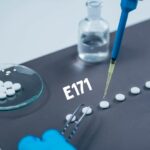
Beyond nano research, what reflections on global issues?
In an article about the ecological transition in chemistry published by the magazine La Recherche, Natacha Krins, lecturer at the Laboratoire de Chimie de la Matière Condensée de Paris (LCMCP), shares her concerns about the applications of nanomaterials for energy. Are batteries really a good solution to the energy problems raised by global warming?
“We don’t always have a global view of the issues. We work on extremely technical subjects but of very limited scope compared to the overall problem”.
She commented that we do not have a global view on, for example, the origin of raw materials, the recycling, or even the energy management strategy that it could be integrated into.
These reflections are in line with the long-standing concerns expressed by many associations.
In addition to the assessment of the risks associated with nanomaterials, the assessment of the “benefits”, real or supposed, of nanomaterials and the conditions for their fulfilment is urgently needed.
The concept of “collective utility” proposed by the PNSE 4 could be the opportunity to start working on this, work also linked to the notions of benefit/risk ratio and life cycle of nanomaterials and products containing them. These are all subjects that can no longer be ignored.
Latest news
Our information sheets to go further
Upcoming Nano Agenda

- Webconference for analysis laboratories, plant fertilizer manufacturers and distributors, public authorities…
- Moderated by David Krupka, nanotechnologies development manager at AFNOR Normalisation and Emilie Langlois-Bertrand, nantechnologies standardization project manager.
- In partnership with Armand Masion (CEREGE) and Patrice Charpentier (ANSES).
- This exchange will also be an opportunity to explore the creation of a national platform to identify standardization needs.
- Website: https://www.afnor.org/evenements/qualite/nanotechnologies-agriculture-cadre-pratique-responsable

- International conference on metallic nano-objects for experts working in the interdisciplinary field of metallic nanoparticles, with a particular emphasis on nanoparticle synthesis and characterization, plasmonics, optics and photonics, catalysis, biomedicine, electronics, and nanoparticle recycling
- Organizers / Partners: CNRS, Bordeaux University, Bordeaux INP, ICMCB, CRPP, CBMN, ISM
- Website: https://mno2026.sciencesconf.org
- Two days of information, discoveries and testimonials for occupational health and safety professionals, experts and enthusiasts to discuss chemical risk prevention in the workplace.
- Organizers: Association TOXILIST
- Website: https://toxidays.fr/



